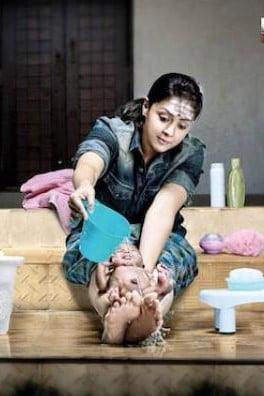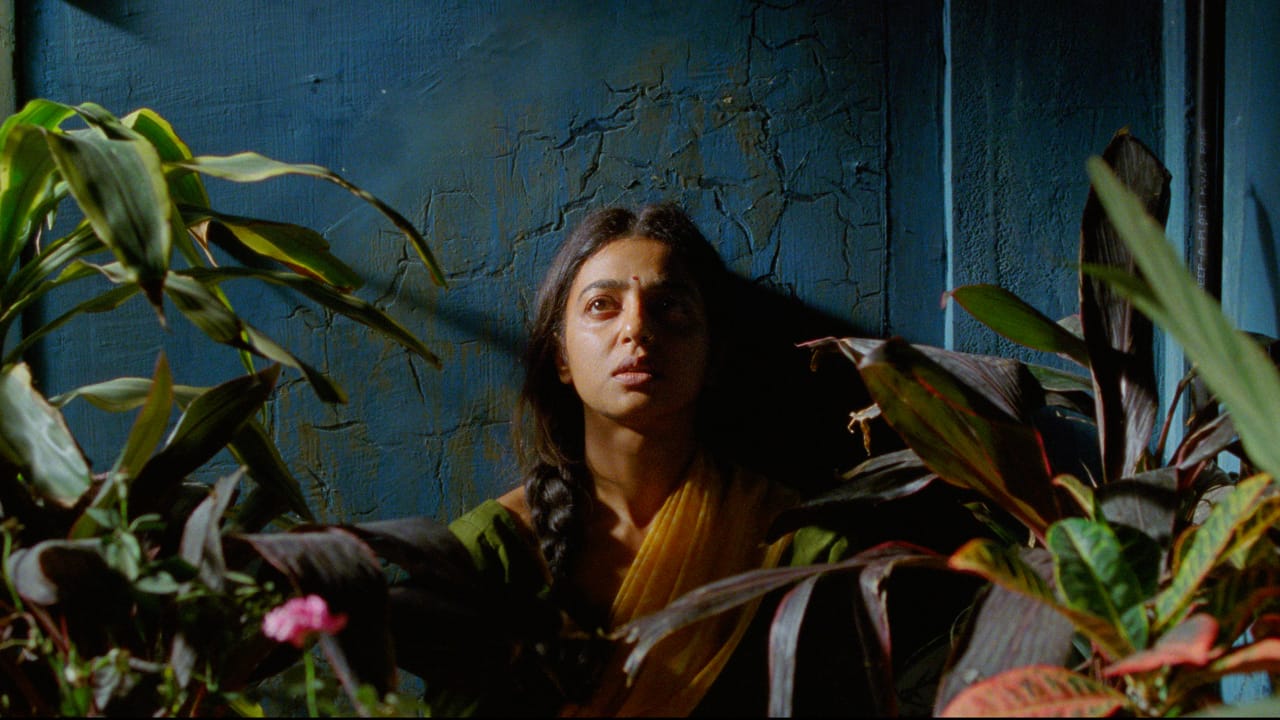Naachiyaar, released in 2018, was an unexpected movie experience. Director Bala, who usually paints a visceral, grim picture directed a climax that was actually hopeful, devoid of hapless cynicism.
It was by all standards, a very much watered down Bala version of violence and other social injustices, onscreen. But the highlight of the movie was the aggressive version of the yesteryear bubbly, girl-next-door heroine, Jyothika. Naachiyaar started with a buzz, as even the teaser generated a controversy. While the images of the teaser were just a barrage of scenes reminiscent of Bala’s stark vision, it ended with something taboo – a woman swearing on screen.
The word essentially another cuss word relating ‘to women’ was argued on all angles like “why she said a word insulting another woman?”, “why was is this suddenly
While swearing was not something new, “culture warriors” started a barrage of arguments defining and re-defining “feminism”, “Tamil culture” and what-not. The actor, in question, Jyothika responded that, while male actors routinely cursed onscreen, the matter became “controversy” as the matter concerned a female actor. It also showed the tailored image, double-standards a female actor is expected to follow in Tamil cinema.
All the hullabaloo, with no one discussing the wider issue of creative freedom, or the social conditioning why swear words always refer (or describe )somehow to “a woman.”
She remains the focussed officer dealing with the investigations, and Naachiyaar shows the broken bureaucratic tangles, that entail the juvenile justice system.
The films subsequently released, and did garner a lot of positive response. While the movie has been reviewed for its cinematic bearings, there are social aspects to Jyothika’s transformative avatar that is relevant to present-day discussions about feminism in Tamil context.
Tamil films are often categorized based on their actors, or directors. Among them are films by director Bala, with their distinctive dark identity. Bala’s films often thrust the ugly reality of social issues on audiences. Many in the mainstream describe his movies as a sob-fest with tragic characters, but he does have an ardent category of fans for his unadulterated style. The potency in his portrayal of class, caste, religious and other biases in the society make his movies a distinguishing aspect of Tamil cinema.

The portraiture of people who we often wantonly ignore become the main characters, in Bala’s movies. The sharp wit of his characters, satirises, respectable society making the brief comic interludes in his movies, a significant stand-alone. The movie Naachiyaar, nonetheless follows the same pattern. The crux of the movie deals with a pregnant underage girl and the subsequent investigations by a female cop.
As a cop, Jyothika dons a very powerful character, which is a far cry from her previous movies that mostly dealt with love, romance and marriage. Her determined demeanour, adds a lot of clout to the movie. The chase scenes, fight scenes, in the establishing sequences of the movie, are a contrast to the special-effects, boom sounds incorporated, fight scenes that hero cops perform. Her blows, action scenes are realistic and depart from the usual artificial, cinematic, loud extravaganzas.
HER CHARACTER in Naachiyaar AS A WOMAN IN HER THIRTIES IS AN ACHIEVEMENT IN ITSELF FOR TAMIL CINEMA, WHICH OFTEN CASTS YOUNG HEROINES AS ROMANTIC INTERESTS WITH DAD-AGED HERO.
The “heroine” of Tamil cinema is the relegated side-kick in most movies. This is a coveted role (owing to screen time) and sometimes the role is reprised by another male actor as the second-hero!
The hero remains central to the movie’s progress and engages the audiences with his talents of song, dance, dialogue and fights. Movies that employ a female protagonist are a rarity. Even in those movies, the role is characterised as powerful within “a culture-value-system” rather than in terms of strong, fit or as an able-bodied protector.

The layers of Tamil culture, dictate Tamil films feature “braveness”, only in terms of male protectors and females as coy, timid, demure and homely. The absence of diversity in female roles and the stunted female characterisation within the movies affect the lack of positive role-models. Women have portrayed the cop roles before but very few actually stand apart. One noteworthy but forgotten performance in recent times would be the character Palaniamma (played by Uma Riyaz Khan) in the silent-hit movie Mouna Guru.
The well-known feminist Gloria Steinham quotes that, “We’ve begun to raise daughters more like sons……but few have the courage to raise our sons more like our daughters.”
This willful ignorance of female characters as subordinate is not a “new” trend but simply an extension of everyday sexism. Movies are part and parcel of daily Tamil life and especially with new media, teasers, trailers, songs, press meets are the core of Tamil media.
The portrayal of a strong character by Jyothika reflects in all aspects of her character in the movie. Her role is an example of a strong female character, but there has also been criticism that she mirrors male hero cops. But a fit, sturdy uniformed woman officer, who chases and bashes criminals is something new to Tamil cinema. As cops, women are often comic props, fitted uniforms to look more sexy than realistic.

Jyothika, in her portrayal as Naachiyaar, imbibes a straightforward, no-nonsense confident attitude. Her character as a woman in her thirties is an achievement in itself for Tamil cinema, which often casts young heroines as romantic interests with dad-aged heroes. She remains the focussed officer dealing with the investigations, and the movie shows the broken bureaucratic tangles, that entail the juvenile justice system. Women are usually nervous with aspects of the criminal justice system like the police, courts and prison. This abhorrence towards the system makes reporting crimes a huge issue. It is one of the reasons why the image of a woman donning this role has a lot of positive impacts. The decision-making power, that rests with her is truly empowering. There are scenes that depict this autonomy within a family setting as well. The character’s stern representation, arguments with her husband show the conflicting tensions that prevail in a working women household. The normalcy with which these issues are handled, add a lot of nuance to prevailing social inequalities. Even the authority with which she carries out what she perceives as justice in the climactic scenes makes this a truly memorable performance by Jyothika.
Also read: 5 Movies That Started A Conversation Around Positive Sexuality
The well-known feminist Gloria Steinham quotes that, “We’ve begun to raise daughters more like sons……but few have the courage to raise our sons more like our daughters.”
Also read: How Tamil Cinema Normalises And Promotes Rape Culture
In an inherently inequal social setting, the value of “male” often supersedes “the female.” Globalisation has ushered in a lot of changes in societies world over. Cries for gender equality echo all over and even the conservative values of Tamil society have started to imbibe this zeitgeist. Great strides have been achieved in education, career but still, patriarchal notions often cloak the modern Tamil households. Media broadcasts this hypocrisy whenever, an assault scandal or rape, surfaces and coverage follow the tired and tested formula (outrage, debate, statement, no-follow up). Role-models play an effective part in how we perceive the world and what we aspire. The lack of strong women role-models/characters hinders bigger aspirations for many young girls. Naachiyaar may not be the perfect example of female power but definitely a good start for Tamil cinema.
Featured Image Source: The News Minute
About the author(s)
A homemaker trying to wedge feminism into daily life. Ambica enjoys reading and is a news junkie. She loves political satire, especially by female comedians. Her other interests are films and plays.




